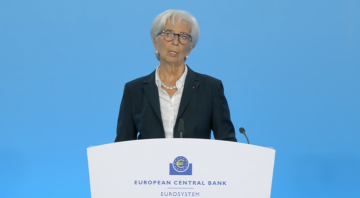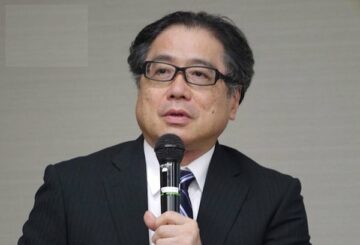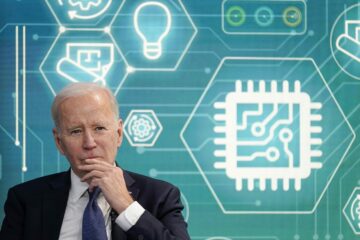
At the foundation of all matter that concerns human activity and relations is money, an artificial human creation that underpins all structural power relations.
This abstraction is meant to reflect all value, but in that reflection money becomes all value itself.
As a measurer of value, money is or is meant to be a neutral judge, but in that judgment it becomes all powerful.
This artificial creation therefore is not abstract, but material, for in its abstraction it exercises total power over material matter.
As such the nature of money and its qualities as well as its effects, is arguably the most important subject of study in all of humanities.
Yet this subject is so ingrained that despite the vast richness within it, it wasn’t until the 70s that Nobel Prize economist Friedrich Hayek questioned the prerogative of the state over money.
That in many ways very niche thought found far wider analysis with the invention of bitcoin which more than a decade on still keeps revealing.
Money, The King’s Chains?
Many would disagree but the three biggest religions are the claims to kingship of three men based on extraordinary power or supernatural nomination.
Jesus of course was the king of the jews. Mosses too. Muhammed and those that followed him conquered all the way to Spain.
Yet as far as it is known about at least Muhammed, the latest of them and thus the one with a richer written history, it is not very clear whether his power derived from god or god was a narration used to legitimize significant power that he already had gained.
He was born to an aristocratic ruling merchant family, with he himself being a merchant. Our speculation is that it was in these trade travels he learned of these stories about god, but our main point is that he was rich and because he was rich he had power, and in this case he clearly was smart too in creating or adopting the narration of being god’s appointed, a claim very common back then and in the middle ages.
But not quite a claim just anyone could make in any meaningful way. That was the ornament to dress or perhaps even hide the already elevated statues due to being born in a rich family.
Dynasties. It is said no one knows the descendants of Alexander, but we do know his predecessors. Another rich family which perhaps ended its dynasty with Alexander.
Aristotle, the hailed god of thinking, was also an aristocrat. Here too it is not clear what happened to his descendants, but we can presume they inherited his wealth.
They inherited money, abstract value, condensed into metal or paper or nowadays code, and from that their children derived power.
That is perhaps best illustrated by the practice of ancient Egyptian pharaohs who used to take with them to the afterlife money, back then gold, so buried with mostly and usually only money.
That can tell you that money is what gave them power, and so a significant friction in the nature of money.
Dynasties v Meritocracy
Because money is condensed value, it can travel generations, and because money is power, it gives rise to a situation of effectively a kingship and aristocracy regardless of the actual method of governance.
An ancient once said that the best eventually rise against Tyranny, instituting an aristocracy. Infighting leads to Democracy. Corruption brings oligarchy. To end that theft we get back to tyranny and so the cycle continues.
That this statement finds mention now 2500 years later shows how little has changed in civil structures since effectively the invention of civilization.
Our theory is that this lack of change in power structures is because the nature of money, all money, has as a byproduct a dynastical societal design.
Not much different than a dumb son being born to a king, money and power traveling through inheritance across generations goes sometime to dumb kids.
Thankfully dynasties don’t have a rule that the oldest gets to rule as otherwise we’d be in a very big mess, but this inheritance based travel of value and power turns a neutral value measurer into an enemy of meritocracy.
That’s because money is fundamentally a zero sum game principally speaking. There are nuances and plenty of exceptions to prove the rule, but if you or more importantly your parents don’t have money, you’ll get very little for your labour relatively speaking because you’ll have to pay ‘rent’ to so many entities that you’re effectively left with very little where your own power exertion is concerned through the utilization of money.
If you have capital on the other hand, you’ll get a lot in return by simply extracting rent which even dumb kids must be able to do.
This creates fundamentally an aristocratic society of a similar structure as that of ancient Egypt. A structure that holds through both tyranny and democracy and a structure that ultimately brings its end because eventually the aristocracy will have too many dumb kids.
In addition since power derives from money, meritocracy is eventually unable to compete because unlike aristocracy, meritocracy can not travel through generations.
The kids of Bezos or Musk, or their kids, or those after them, may well be very very dumb while in charge of country level resources and thus power.
A starving African may well be Einstein but we won’t know because the roulette gave him basic survival as the primary and perhaps only concern.
Less drastically, a man or woman may be far more capable to lead perhaps even a country, but lacking inherited resources can’t quite compete with the 40 years ruler that now runs the country.
The best proof of our thesis so being your question: which country? Raising the bigger question: what is then the solution?
Free Money
If money is power, then who should decide who should have such power and how is such decision made?
The answer currently is the same as for kingships. It is decided by a plain rule of inheritance. But as with kings and dumb sons, so too here we have the same problem.
The answer to kingship was democracy: we the people decide who is king. The answer to little kings can perhaps also be democracy: we the people decide what is money.
Just like anyone can run to be king and be voted on by the people, this idea proposes that anyone can be a little king and let people vote with their money on whether to accept this little king money or not.
As it happens this is illegal, prohibited by the Securities Act 1933. As you’d expect perhaps. Running for kingship about three centuries ago was of course very illegal.
Yet the legality of matters is ultimately decided by the collective judgment of right and wrong, not by our long gone ancestors 100 years ago proclaiming some dictat.
And that power should be disbursed based on meritocracy as decided by collective judgment, must be a right not a wrong.
If power derives from money then logically from the above statement we derive that all have the right to issue money in good faith with the people alone to decide whether it is good or bad money.
While some claim this idea is an attack on the government itself, its fallacy can be shown by ancient examples of the government collecting their taxes in plain grain. They can just as easily so collect their taxes based on the market value of a pucoin or bcoin as in us dollars.
The structure of the government itself therefore is not quite affected. This proposal instead removes the grip on power and money through dynastical entitlement by opening the determination of power to the judgment of all humans through their choice of what money they accept or invest in.
Just like 300 years ago the suggestion that the people chose their king sounded like chaos, so too this may to some sound like chaos.
Yet just like 1,000 years ago the then English king had no choice but to sign the Magna Carta, and 500 years ago to abdicate, so too it may be that this nascent new reality of democratizing money is not quite subject to an edict granting the right but more a right being grabbed.
At a time when inequality is at its highest level in decades, we may therefore be seeing meritocracy strike back.
Because only by democratizing money can there be such a thing as a real democracy. Otherwise, we’re all merely slaves to the dynasties that often have dumb kids.
Source: https://www.trustnodes.com/2021/05/22/on-bitcoin-and-money
- 000
- 100
- African
- AI
- All
- analysis
- BEST
- bezos
- Biggest
- Bitcoin
- capital
- change
- charge
- Children
- claims
- code
- Collecting
- Common
- content
- continues
- Corruption
- Creating
- Democracy
- Design
- dollars
- Egypt
- English
- family
- finds
- game
- Gold
- good
- governance
- Government
- here
- Hide
- history
- How
- HTTPS
- Humans
- idea
- Illegal
- IT
- kids
- King
- Labour
- latest
- lead
- learned
- Level
- Long
- man
- Market
- Matters
- Men
- Merchant
- metal
- money
- Other
- Paper
- parents
- Pay
- People
- Plenty
- power
- proof
- proposal
- Reality
- Rent
- Resources
- Run
- running
- Securities
- smart
- So
- Society
- son
- Spain
- State
- Statement
- Stories
- Study
- Taxes
- theft
- Thinking
- time
- trade
- travel
- us
- value
- Vote
- Wealth
- What is
- WHO
- within
- woman
- years
- zero












